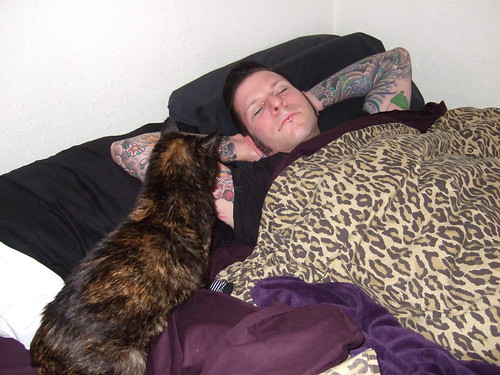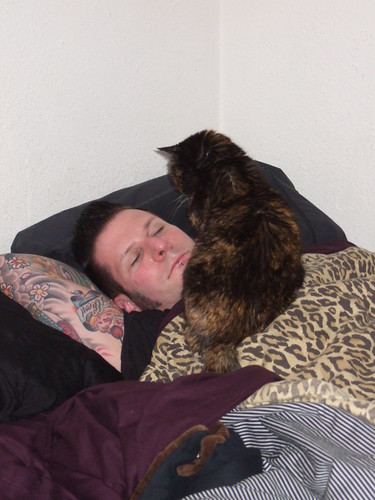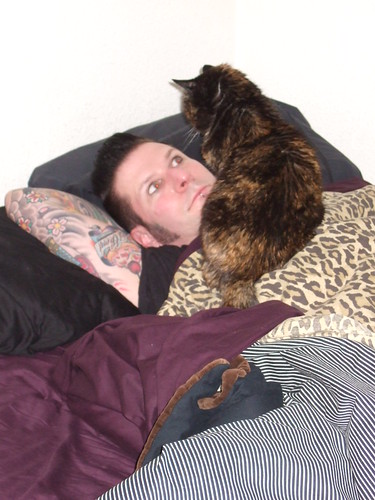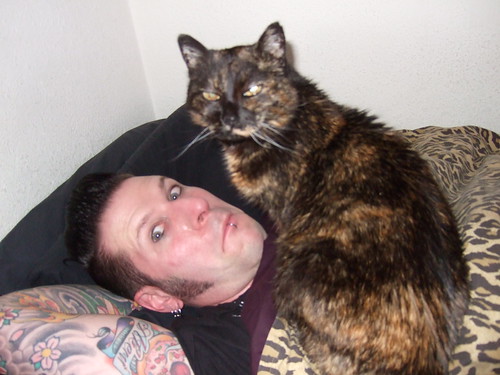A common behavior problem that plagues our clients is best described as "the early morning wake up call". Picture this scenario:
You're sound asleep and pushing some serious Z's. Suddenly, your chest gets heavier by about seven pounds (if you're lucky). You feel like someone or something is watching you.
"Nah, its just a dream. I'll just turnover and go back to sleep". Then, the weight moves to your back. A faint purr, followed by a low toned mew is heard right next to your ear. And then....it happens. You get tapped on the face by a paw...again and again and again as the low mew becomes a demanding MEOW! What the *#!%!?!?!
You open your eyes and notice that within inches of your face is your beloved best friend staring at you. It's feeding time and you have no other option then to get up, get yourself together and crack open a can of cat food. You my friend, have been trained by the cutest alarm clock ever invented!
Please pardon my puffy morning face! Oh, like you look like a beauty queen when you wake up?
As cute as this may sound to those of you who have well behaved cats that sleep in, it can be a total nightmare for those us humans who want to get a few extra hours of sleep in the morning. So, what do you do about it? Buy earplugs? Wrap yourself in a cocoon of blankets and pillows?
The first rule of the "early morning wake up call" is out-stubborning your cat. You absolutely have to ignore the cries for attention. Easier said then done? Not really. Its a matter of changing your cats routine around so that there is no reward to the behavior. Don't feed your cat when you wake up! Switch the feeding time to the afternoon when you get home from work. Just getting out of bed at all is a reward to your cats cries for food. Your cat will try to up the ante each day to get you closer and closer to their goal. Sometimes even negative attention such as yelling can reinforce the behavior.
Be as active with your cat during the day as humanly possible. Your cat should be tired out before you go to bed. This means more than a few minutes of interactive play. Try to have 2+ interactive play-sessions a day. Give you cat a play session in the evening - try to squeeze in at least 10-15 minutes each time with the help a toy that keep your cat's interest. The same old toy on the floor each night is totally boring. Switch things up a bit!
Of course, you could lock the cat out of the room as well, but you are likely to have similar disturbances outside of the door. Try something aversive outside of the room, like sticky tape or an upside down carpet runner (with the nubby side up). You could also try a piece of cardboard on the floor with the sticky tape on it - which they will likely not want to sit on while they try to scratch at the door. Once again, DO NOT ANSWER THE CRIES FOR ATTENTION! If you follow these simple guidelines, a good night's rest may be in your future.
The Cat Behavior Program wishes to thank Matilda the cat for demonstrating her ability to get Daniel to work on time every day.




No comments:
Post a Comment